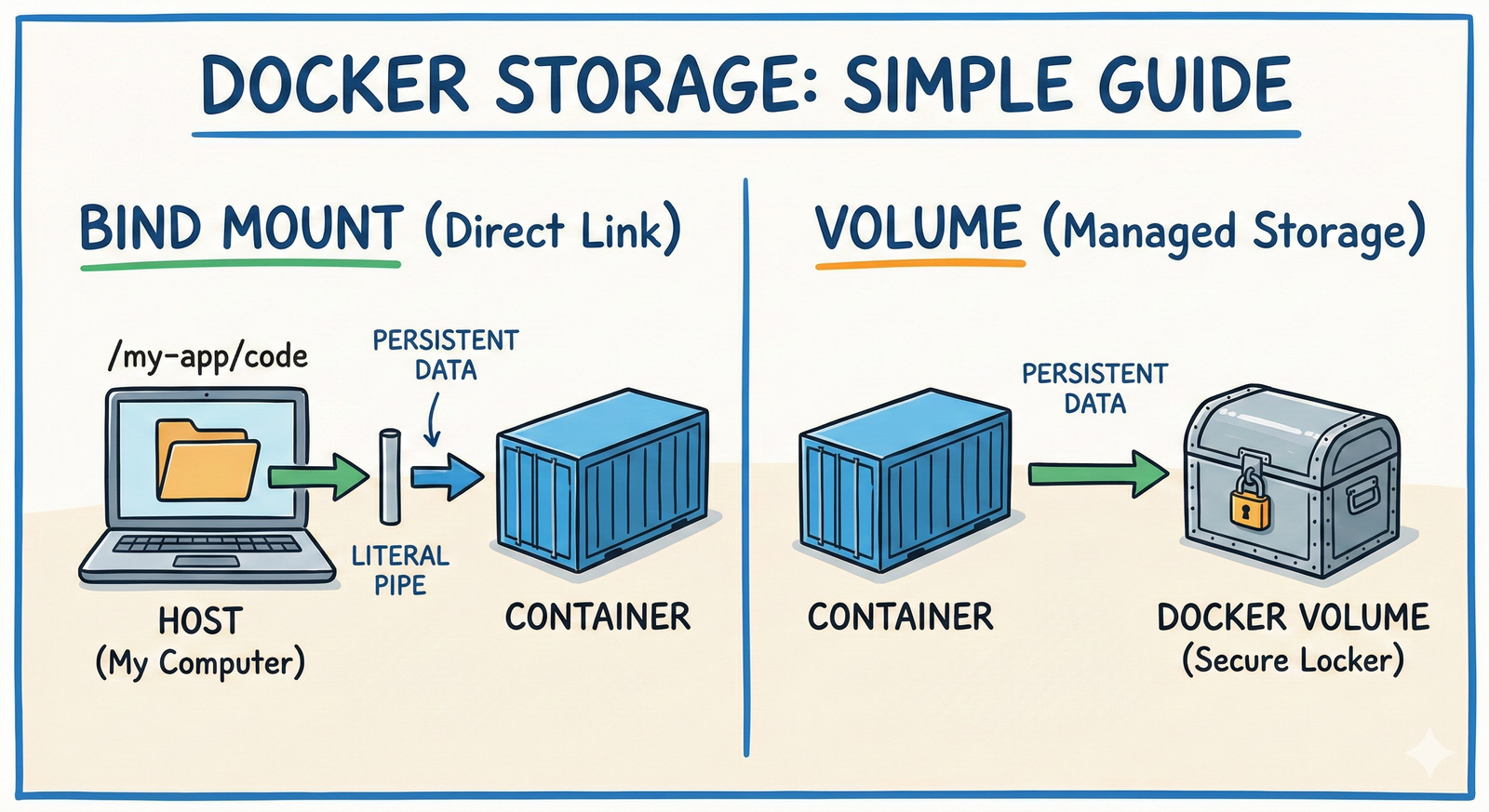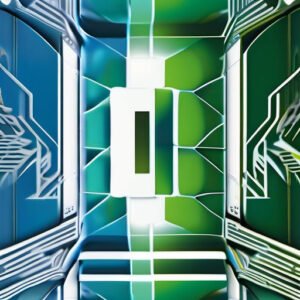Unlock the Power of RustDesk in Your Self-Hosted Homelab Environment
Discover how RustDesk, a versatile remote access software, can revolutionize your self-hosted homelab setup. Explore its seamless integration, security features, and operational efficiency, making it an essential tool for homelab enthusiasts seeking control and flexibility.
Understanding RustDesk
Understanding the intricacies of RustDesk is essential for embracing its potential within your self-hosted homelab environment. RustDesk emerges as a compelling solution for efficient remote access and control, primarily due to its outstanding core features. At its essence, RustDesk operates as a remote desktop software that is committed to combining exceptional functionality with top-tier security, presenting users with a suite of benefits that cater to both personal enthusiasts and professional environments.
**End-to-end encryption** is a cornerstone of RustDesk’s architecture, offering robust protection of data transmissions between the connected devices. This level of cryptographic security ensures that only the sender and the intended recipient can decrypt and access the transmitted information, thereby significantly minimizing vulnerabilities to eavesdropping or unauthorized interception. This is particularly appealing for privacy-conscious users who prioritize confidentiality and data integrity.
RustDesk’s **multi-platform support** enhances its appeal further, providing seamless operability across various operating systems including Windows, macOS, Linux, iOS, and Android. This broad compatibility ensures that users can maintain productivity and control irrespective of the device they choose to connect from. Whether working from a PC, tablet, or smartphone, RustDesk maintains a consistent performance standard that ensures reliable remote operation.
The software’s **open-source nature** is another pivotal aspect that sets RustDesk apart from traditional remote desktop services. As an open-source project, RustDesk benefits from community-driven development and transparency. Users have the freedom to inspect, modify, and contribute to the codebase, fostering an environment of collaborative improvement. This transparency not only encourages trust among its users but also enables an adaptable platform where tweaks and optimizations can be tailored to individual needs.
For both personal homelab enthusiasts and professional IT administrators, RustDesk represents an agile and secure alternative to mainstream remote desktop solutions. By providing encrypted connections, cross-platform agility, and open-source flexibility, RustDesk positions itself as a versatile tool capable of addressing the diverse demands of modern remote access applications.
Advantages of Self-Hosting RustDesk
Exploring the advantages of self-hosting RustDesk within your homelab unveils a wealth of benefits, primarily centered around enhanced security, privacy, and data control. By harnessing the power of self-hosting, you no longer need to entrust your sensitive information to third-party servers or services. Instead, you maintain full sovereignty over your data, ensuring that only those with explicit permission can access it. This control is pivotal, given the increasing concerns over data breaches and privacy infringements in today’s digital landscape.
A self-hosted RustDesk setup requires a fundamental understanding of server management and network configurations, but the payoff is exceptional customization and scalability. The starting point involves selecting hardware capable of running a server 24/7. Once the physical setup is ready, the installation of RustDesk’s open-source server software is straightforward. This involves configuring the server application to handle connections securely, utilizing your preferred operating system, whether it’s Linux, Windows, or macOS.
Self-hosting RustDesk empowers you to tailor the environment to your specific needs. You can dictate authentication methods, manage user access levels, and determine what network resources are available to remote devices. Moreover, you can scale the system effortlessly to accommodate growth in usage or a broader homelab infrastructure. This adaptability means that as your technical experiments evolve, your RustDesk deployment can smoothly adapt without disrupting existing workflows.
Customization extends to security enhancements as well, allowing the integration of measures like advanced firewalls, VPNs, and additional encryption layers to bolster your setup’s defenses. Consequently, your self-hosted RustDesk server not only aligns precisely with your security policies but also provides peace of mind in an era where data integrity and confidentiality are paramount.
Therefore, setting up a self-hosted RustDesk environment in your homelab serves as a reliable, robust solution, granting you unparalleled control and security while facilitating remote access. This infrastructure complements and enhances the experimental nature of a homelab, giving you the power and flexibility to explore new technological frontiers confidently.
Building Your Own Homelab with RustDesk
A homelab serves as a personal space where technology enthusiasts experiment, innovate, and learn by deploying and managing their own home-based IT infrastructure. It is a sandbox environment, offering endless possibilities for crafting a personalized network setup, testing new software, or simply having full control over a private digital environment. When integrating RustDesk into a homelab, you unlock robust remote management capabilities, turning your experimental setup into a versatile management powerhouse.
Incorporating **RustDesk** into a homelab environment significantly enhances its functionality by offering seamless remote access, enabling you to manage, troubleshoot, and control devices from anywhere. Whether you’re monitoring network activities, deploying application updates, or simply accessing files, the remote capabilities provided by RustDesk streamline these processes, significantly increasing your productivity and system efficiency.
To effectively integrate RustDesk, you will need both hardware and software infrastructure. On the hardware side, a modest setup might include a reliable router, a set of servers or Raspberry Pis, and essential peripherals. These should be connected through a secure and fast network to ensure smooth operation. Additionally, having additional storage solutions, such as NAS or external hard drives, would complement your homelab in managing data effectively.
On the software front, installing a robust operating system that supports containerization is key, as it allows RustDesk to seamlessly interface with other services within your homelab. Virtualization tools like Docker or Proxmox can be remarkably beneficial, enabling you to run RustDesk in an isolated environment, thereby maximizing security and ease of management. Furthermore, implementing a secure VPN setup can safeguard remote connections, ensuring that data transmitted via RustDesk remains encrypted and protected.
Integrating RustDesk within a homelab doesn’t just provide high-level remote management; it offers an opportunity to dive deep into networking concepts, foster learning, and refine skills in system administration and cybersecurity. This fusion not only amplifies the utility of a homelab but also propels user expertise to new heights.
Installing and Configuring RustDesk on Different Operating Systems
Installing and configuring RustDesk in a homelab empowers you to leverage its remote management features seamlessly across multiple operating systems. Whether you’re working with Windows, macOS, Linux, iOS, or Android, RustDesk offers robust support for these platforms. Proper installation and configuration ensure not only functionality but also align with stringent security requirements inherent in any self-hosted configuration.
**Windows and macOS**: Begin by downloading the RustDesk installer compatible with your OS from the official RustDesk website. For Windows, run the `.exe` file and follow the on-screen prompts to install. On macOS, open the downloaded `.dmg` and drag RustDesk to your Applications folder. Upon installation, it is crucial to configure your firewall settings to allow RustDesk connections while blocking unauthorized access. On both platforms, customize your preferences to include secure remote control permissions and personalize access settings to align with your security needs.
**Linux**: Linux users can install RustDesk via the repository terminal commands provided on the RustDesk website. Ensure your Linux distribution’s package manager is up-to-date. After installation, it’s advisable to configure iptables or your preferred firewall solution to permit RustDesk traffic. Tailor user and access permissions through your configuration files to enhance security.
**iOS and Android**: Mobile devices extend the reach of your homelab. Download RustDesk from the App Store (iOS) or Google Play Store (Android). Quick setup guides you through enabling remote access securely. For iOS, ensure that screen recording permissions are authorized for comprehensive functionality. On Android, adjust the app settings to align with your privacy and security expectations, especially when connecting to your homelab remotely.
**Tailoring Security Settings**: Across all platforms, adapting RustDesk’s settings to your specific usage scenarios is imperative. This means configuring end-to-end encryption, setting up strong authentication mechanisms, and using the self-hosted server feature for internal network deployments to maintain high security. Additionally, regular updates to RustDesk ensure the latest security patches are in place, reinforcing its capabilities in your self-hosted environment. This meticulous configuration is foundational as you progress towards optimizing security in the subsequent section.
Optimizing Security in a Self-Hosted Environment
**Optimizing Security in a Self-Hosted Environment**
Ensuring the security of your self-hosted RustDesk server is paramount, as it forms the backbone of your homelab’s remote access capabilities. One of the first lines of defense is configuring your firewall settings carefully. It’s crucial to ensure that only necessary ports are open and accessible. Typically, RustDesk operates over certain TCP/UDP ports, so confirm these are explicitly granted access, while keeping other non-essential ports closed. This minimizes potential entry points for unauthorized users.
RustDesk excels in providing **end-to-end encryption**, ensuring that data transmitted between your devices remains secure from interception. Encryption is automatic, but it’s wise to verify that all configurations align with the latest security practices. Regularly review encryption standards and update settings as needed, especially after significant software updates.
Implementing robust **user access controls** is equally important. RustDesk allows you to define who can access your system, with options to create user-specific passwords and roles. Limiting administrative permissions and enforcing the principle of least privilege ensures that users only access resources necessary for their tasks, substantially reducing security risks. Additionally, enforce strong, unique passwords for each user, and consider incorporating two-factor authentication to add an extra security layer.
Staying informed about **software updates** is a critical aspect of maintaining security. RustDesk provides regular updates that often include security patches and new features to enhance your server’s resilience against threats. Automate these updates if possible, or set reminders for periodic manual checks.
In this chapter’s context alongside tools like Docker or Kubernetes, it’s beneficial to consider **containerization** to isolate RustDesk components, adding another layer to your security architecture. By carefully balancing firewall rigor, utilizing encryption, managing user controls, and maintaining an up-to-date system, you safeguard your self-hosted environment efficiently. This strategy not only protects against internal and external threats but also optimizes the operational reliability of your homelab. As you delve into integrating RustDesk with other tools, these security foundations will serve you well, enabling seamless and secure interactions across your infrastructure.
Integrating RustDesk with Other Homelab Tools
Integrating RustDesk into your homelab environment can significantly enhance both efficiency and operational synergy when combined with other popular tools like Docker, Kubernetes, or virtual machines (VMs). RustDesk’s self-hosted capabilities allow for seamless integration with containerized applications managed by Docker and Kubernetes. By deploying RustDesk within a Docker container, you can easily manage and scale remote access capabilities while maintaining clean separation from other services. This containerized approach empowers you to swiftly deploy updates, ensuring that your remote access solution remains current without disrupting the homelab’s overall functionality.
Similarly, integrating RustDesk with Kubernetes offers dynamic scalability and automated orchestration, which is invaluable in a homelab environment that may need to adapt quickly to changing demands. Kubernetes can manage multiple RustDesk instances, automatically deploying and scaling them as needed, thereby ensuring optimal use of resources and infrastructure without manual intervention. This not only maximizes efficiency but also enhances the resiliency of your remote access framework.
RustDesk can also be deployed on VMs, providing an isolated and secure environment tailored to specific needs or user groups. VMs allow you to emulate multiple physical machines within your homelab, each running dedicated instances of RustDesk alongside other services. This setup is particularly beneficial for testing or segregating user access based on different project requirements, all while leveraging RustDesk’s robust security features.
Real-world examples of successful integrations often involve utilizing RustDesk for remote management of Docker or Kubernetes-based applications, enabling administrators to troubleshoot and manage services from any location effectively. The ability to collaborate on complex tasks remotely, as will be discussed in the following chapter, becomes significantly smoother with RustDesk’s versatile integration capabilities, streamlining workflows and enhancing overall management tasks. By leveraging these integrations, a self-hosted homelab not only increases its efficiency but also enriches its functionality through improved resource allocation and enhanced access control.
Remote Support and Collaboration Using RustDesk
Unlock the collaborative potential of RustDesk in your homelab environment by leveraging its intuitive file transfer and chat functions. These features are designed to transform remote support and teamwork, fostering an environment of shared learning, effective troubleshooting, and seamless knowledge exchange.
RustDesk excels in creating a virtual bridge between team members, making remote support a more interactive and engaging experience. The **file transfer functionality** allows users to share necessary documents, screenshots, and logs with ease, streamlining the troubleshooting process. This can dramatically reduce the time spent on resolving issues, as team members have immediate access to the resources they require. Whether it’s a configuration file or software update, transferring files across the network becomes a quick and efficient task, encouraging continuous productivity.
The **chat function** in RustDesk is more than just a communication tool—it’s a platform for real-time collaboration. It enables team members to discuss issues in the moment, brainstorm solutions, and provide guidance without needing to switch between applications or devices. By maintaining the conversation within the same interface, RustDesk eliminates the distractions and inefficiencies often associated with remote communication. This utility proves invaluable for team projects or collaborative problem-solving sessions and enhances the facilitation of educational initiatives within the homelab.
Within a self-hosted homelab environment, these collaborative features open doors to significant learning opportunities. Enthusiasts and professionals alike can engage in **peer-to-peer support**, exchanging insights and troubleshooting techniques. Such interactions can lead to a deeper understanding of various technologies, as well as the development of innovative solutions to common challenges.
Moreover, hosting RustDesk in your homelab ensures that all communication stays within your control, enhancing security and privacy. By fostering an interactive and secure environment, RustDesk encourages a culture of collaboration, empowering remote support and teamwork while integrating seamlessly with other homelab tools discussed previously, paving the way for the maintenance insights to follow.
Troubleshooting and Maintenance Tips for RustDesk
Troubleshooting and maintaining your RustDesk setup in a self-hosted homelab can greatly impact the overall reliability and security of your remote access system. For common troubleshooting, begin with checking network configurations, as connectivity issues often disrupt RustDesk operations. Ensure that firewall settings allow traffic on necessary ports—default being 21115 for TCP and UDP, unless you have altered them.
If users experience authentication errors, verify that the server’s keys are correctly set up, matching between all client and server devices. Connectivity issues may also arise from improperly set domain names; confirm they are correctly configured in your domain service settings and are resolvable externally.
When diagnosing performance hiccups, consider your server’s resource allocation. RustDesk, while lightweight, requires sufficient RAM and CPU resources, especially if multiple concurrent connections exist. Monitoring these metrics can offer insights into potential bottlenecks. Additionally, an updated deployment is paramount; outdated versions can present vulnerabilities or inefficiencies, so regular checks for updates on both server and client applications are crucial.
Establishing routine maintenance practices will extend RustDesk’s lifespan in your homelab. Initiate periodic assessments of server and application logs for unexpected errors or anomalies, aiming to pre-empt potential disruptions. Make it a habit to back up your configuration files, as this will facilitate quick recovery in the aftermath of unintended modifications or corruptions.
For security, ensure continual updates to your operating system and associated libraries, guarding against vulnerabilities. Implementing robust authentication measures like multi-factor authentication or permissions-based access can enhance the security posture of your RustDesk environment.
Monitoring the performance and security, setting up alerts for unusual activities, and maintaining an organized change control system will reduce downtime and safeguard against operational disruptions. These practices aim to cultivate a stable, secure, and efficient self-hosted RustDesk environment, paving the way for seamless remote support and collaboration in your homelab.
Conclusions
RustDesk’s self-hosting capabilities offer unparalleled flexibility and security for homelab enthusiasts seeking efficient remote access solutions. By integrating RustDesk into your homelab, you gain complete control over your data and can optimize your setup to meet specific needs. Embrace the potential of RustDesk to transform your homelab experience.













Post Comment